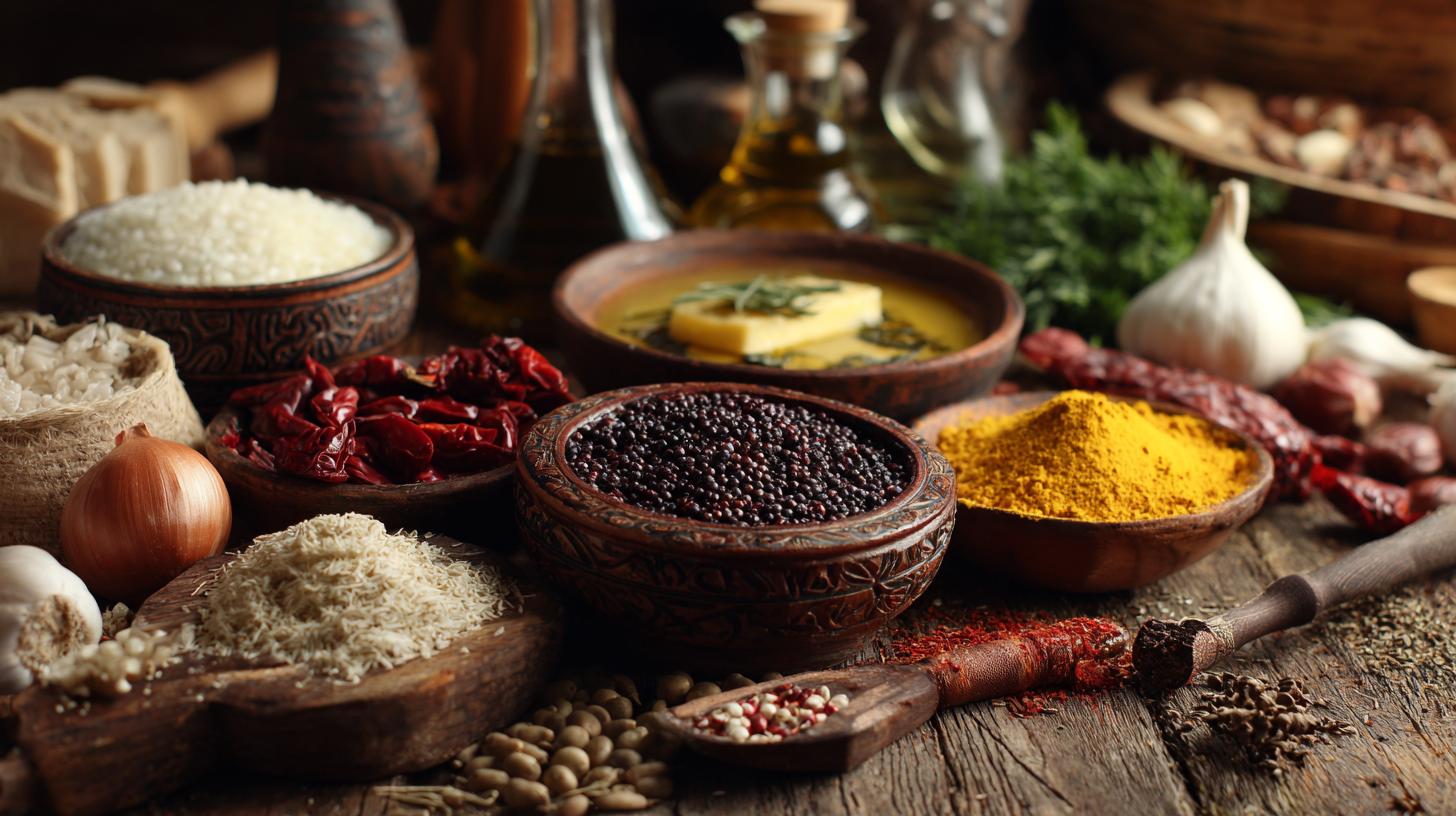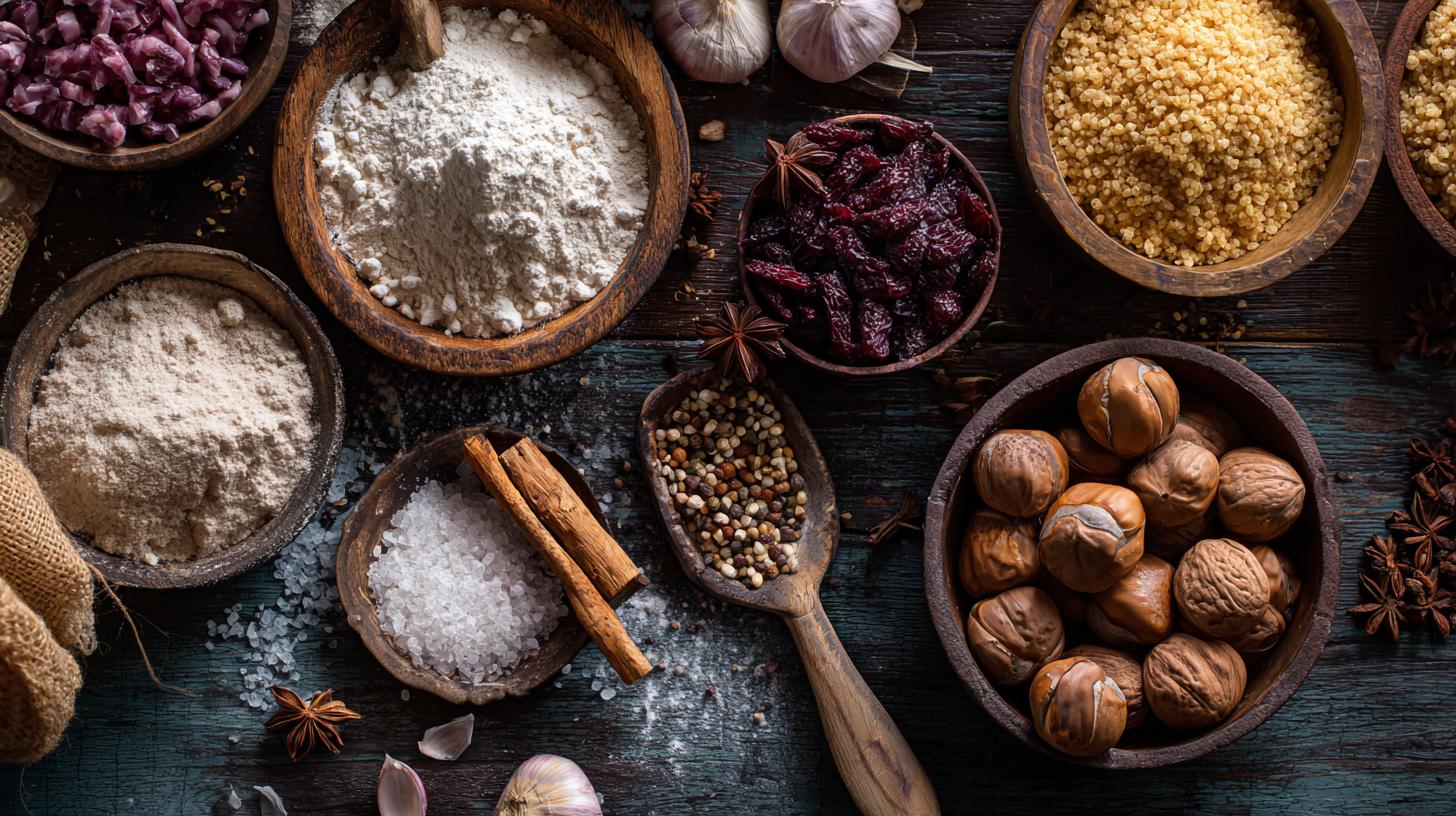Bringing the unique and flavorful ingredients of Georgian cuisine into your home country can be an exciting venture, whether you’re a chef, a restaurateur, or simply an enthusiast of Georgian food. However, navigating the legal landscape of importing these ingredients requires careful preparation and a solid understanding of customs regulations, documentation, and safety standards. This article will provide detailed tips for importing Georgian ingredients legally, helping you avoid common pitfalls and ensuring a smooth import experience.
Understanding the Importance of Legal Importation
Importing food products is governed by strict rules and policies designed to protect consumers, maintain food safety standards, and prevent the introduction of pests or diseases. Georgian ingredients, often including unique herbs, spices, dried fruits, nuts, and various specialty foods, can be subject to rigorous inspection and regulation in many countries. Ignoring legal requirements can lead to delays, fines, or even the confiscation of your shipments.
The first step in any successful import plan is understanding the legal framework of your destination country. This knowledge ensures you comply with regulations like FDA requirements in the United States, the European Union’s food safety standards, or other relevant national controls.
Identifying Georgian Ingredients: What Are You Importing?

Before diving into import regulations, it’s essential to clearly define the types of Georgian ingredients you wish to import. This could range from dried herbs like tarragon and fenugreek, to unique nuts like Georgian walnuts, specialty cheeses such as Sulguni, dried fruits, and even wines.
Common Georgian Ingredients to Consider
- Dried Herbs and Spices (e.g., fenugreek, blue fenugreek, coriander)
- Dried Fruits (e.g., apricots, plums, mulberries)
- Nuts (especially walnuts)
- Honey and Natural Sweeteners
- Specialty Cheeses (e.g., Sulguni)
- Georgian Wine and Spirits
- Traditional Preserved Foods (e.g., pickled vegetables)
Identifying the exact products will allow you to check specific import requirements, as different items fall under different categories with corresponding legal implications.
Researching Import Regulations and Restrictions
Every country has its own set of rules for importing food-related products. When importing Georgian ingredients, you need to check if the items are allowed, restricted, or prohibited by your government’s customs authorities. Many countries employ strict import controls to avoid introducing pests, toxins, or diseases.
Key Factors To Investigate
- Food Safety Standards: Check whether the ingredient meets the sanitary and phytosanitary (SPS) standards.
- Permits and Licenses: Some products may require special import permits or licenses.
- Packaging and Labeling: Imported food products often need precise labeling, including origin, ingredients, and shelf life.
- Customs Tariffs and Taxes: Calculate applicable duties to determine the cost-effectiveness of import.
Consult official government websites such as the customs authority or food safety department, as they often publish detailed guidelines. You may also want to reach out to an experienced customs broker who specializes in food imports.
Documentation and Certification
Proper documentation is one of the most critical aspects of importing Georgian ingredients legally. Without the right paperwork, your shipment could face delays or rejection.
Essential Documents for Importing Georgian Ingredients
| Document | Description | Why It’s Important |
|---|---|---|
| Commercial Invoice | Describes the contents of the shipment, value, and terms of sale. | Used for customs valuation and declarations. |
| Packing List | Details how the products are packed and their quantities. | Helps customs and logistics verify shipment accuracy. |
| Certificate of Origin | Certifies where the goods were produced. | May be required for tariff preferences or regulatory compliance. |
| Phytosanitary Certificate | Confirms goods are free of pests and diseases (for plant products). | Usually mandatory for herbs, nuts, and dried fruits. |
| Health or Sanitary Certificate | Certifies that food items meet health and safety standards. | Important for dairy, honey, and any products of animal origin. |
| Import License or Permit | A government-issued authorization for importing specific goods. | Required for controlled or regulated items. |
Additionally, keep records of supplier certifications, such as organic certifications if applicable, or quality assurance documents.
Finding Reliable Suppliers in Georgia

Sourcing Georgian ingredients legally begins with working alongside dependable suppliers who understand export regulations and provide the right documentation. Partnering with suppliers who have experience exporting goods can significantly ease the legal complexities you might face.
What to Look for in a Supplier
- Verification of Export Permissions: Confirm they have the necessary authorizations from Georgian authorities.
- Product Quality and Certification: Ensure the products meet your country’s safety standards.
- Transparency in Documentation: Suppliers should provide all needed certificates and invoices.
- Experience with Customs Clearance: A knowledgeable supplier understands import/export nuances.
- Clear Communication and Shipping Options: Timely and clear logistics handling reduces errors and delays.
Building these supplier relationships can be vital for ongoing import success.
Packaging, Labeling, and Transportation Considerations
The way Georgian ingredients are packaged and labeled plays a significant role in legal importing. Customs authorities inspect shipments closely for compliance with packaging and labeling standards.
- Packaging: Should protect contents from contamination and damage. Many countries require original manufacturer packaging or repackaging according to local standards.
- Labeling: Must include product name, country of origin, ingredients, production and expiration dates, storage instructions, and allergen information.
- Transportation: Proper temperature control may be necessary for sensitive items like cheese or honey. Use reliable carriers experienced in food transport.
Ignoring these details can result in your shipment being detained or rejected.
Understanding Customs Clearance Procedures
Once your Georgian ingredients arrive at the border, customs officials will begin the clearance process. This involves verifying documentation, inspecting goods if needed, and applying applicable tariffs.
Steps in Customs Clearance
- Submission of Import Declaration: File the necessary paperwork electronically or physically with customs.
- Payment of Duties and Taxes: Pay any applicable import duties, VAT, or other fees.
- Physical Inspection: Customs may inspect a sample or the entire shipment to ensure compliance.
- Release of Goods: After successful clearance, products are released for delivery.
Engaging a customs broker can help speed up this process, ensure accuracy, and handle unexpected hurdles.
Common Challenges and How to Avoid Them
Importing Georgian ingredients can sometimes encounter difficulties. Knowing common challenges in advance can help you prepare and navigate issues smoothly.
Typical Issues Faced by Importers
| Challenge | Cause | Tip for Avoidance |
|---|---|---|
| Delayed Shipments at Customs | Incomplete or incorrect documentation | Double-check all paperwork; use experienced brokers. |
| Product Rejection/Inadmissibility | Non-compliance with safety or phytosanitary regulations | Verify product compliance and obtain required certificates in advance. |
| Additional Inspections | Random or suspicious shipments | Maintain transparent records and use trusted suppliers. |
| High Import Costs | Unanticipated tariffs or fees | Research tariffs beforehand and calculate your costs accurately. |
Adopting an organized and proactive approach is essential to prevent these issues.
Leveraging Professional Help for Smooth Importing
If you are new to importing or find the regulations complex, consider seeking professional assistance. Customs brokers, freight forwarders, and legal consultants specializing in food imports can clarify requirements, manage documentation, and ensure your shipment complies with all legal standards.
Benefits of Hiring Experts
- Compliance assurance, reducing legal risks
- Faster customs clearance and fewer delays
- Expert advice on tariff classification and cost savings
- Support in resolving customs disputes or inspections
- Guidance on evolving regulations or trade agreements
Even if you prefer to manage some parts yourself, having a knowledgeable consultant to review your process can save time and money.
Staying Updated on Regulatory Changes
Import laws and regulations can change frequently. Staying informed about updates from your country’s customs and food safety authorities is crucial. Signing up for newsletters, attending webinars, or participating in trade associations can keep you ahead of new rules affecting the import of Georgian ingredients.
Because Georgia is increasingly becoming a partner in various regional trade agreements, some restrictions or tariffs may be eased in the future, making it essential to keep tabs on any new developments.
Summary of Essential Tips for Importing Georgian Ingredients Legally
To wrap up the key points, here is a checklist summarizing the core tips for importing Georgian ingredients legally:
- Identify the exact Georgian ingredients you want to import and classify them properly.
- Research and understand the import regulations and restrictions of your country.
- Obtain and verify all necessary documents and certifications from your Georgian suppliers.
- Choose reliable suppliers who have experience exporting and can provide compliant products.
- Ensure proper packaging, labeling, and transportation methods are adhered to.
- Prepare for customs clearance by submitting accurate paperwork and paying required fees.
- Be aware of common challenges and take preventive measures.
- Consider working with customs brokers or professional consultants for complex imports.
- Stay updated on regulatory changes affecting food imports.
Taking a meticulous and methodical approach to import Georgian ingredients not only keeps you compliant but also builds a trustworthy reputation with customs officials and suppliers alike. Embarking on your import journey with these tips in mind will help ensure that the unique tastes of Georgia arrive safely and legally at your doorstep or business, ready to be enjoyed.